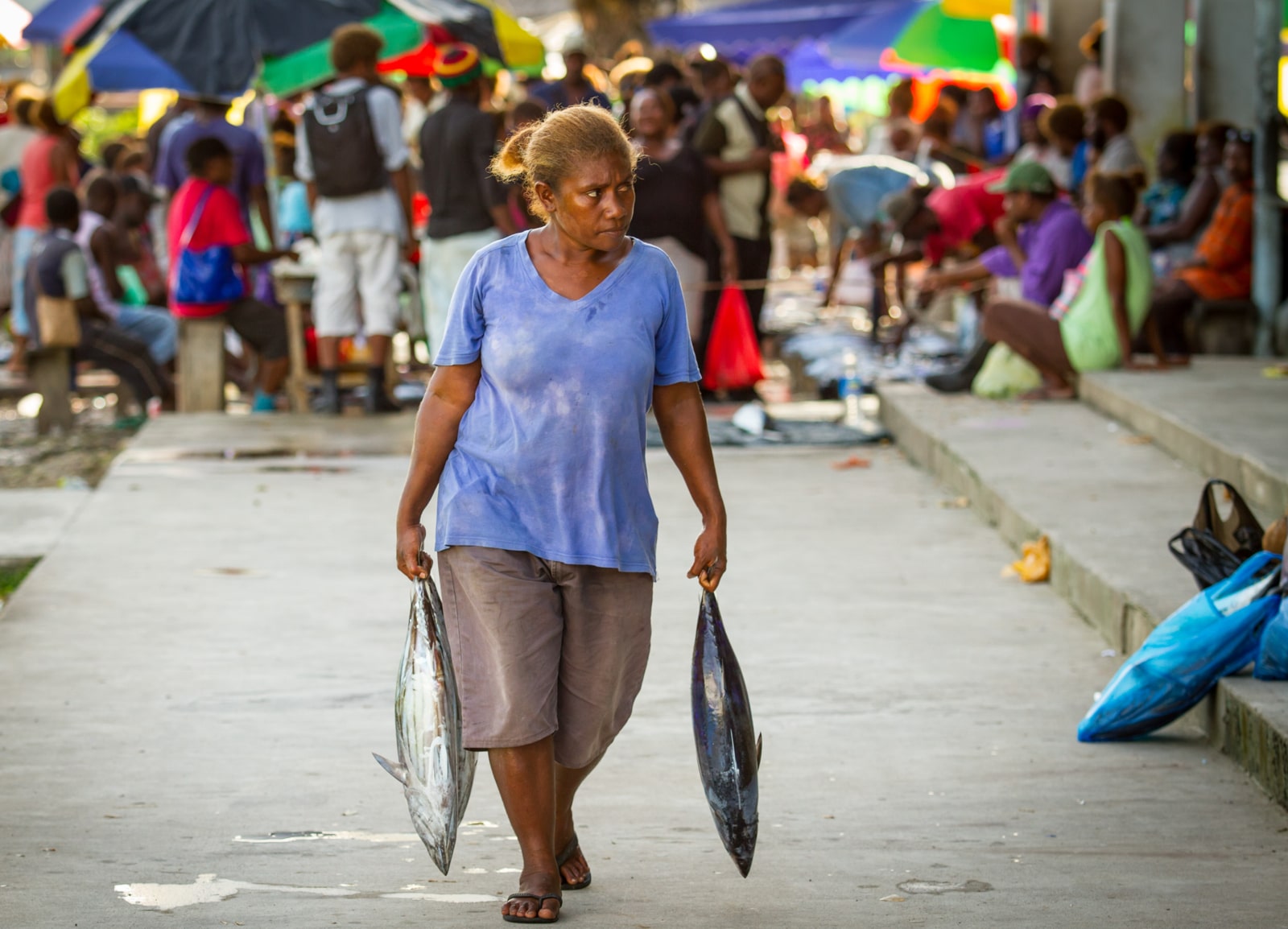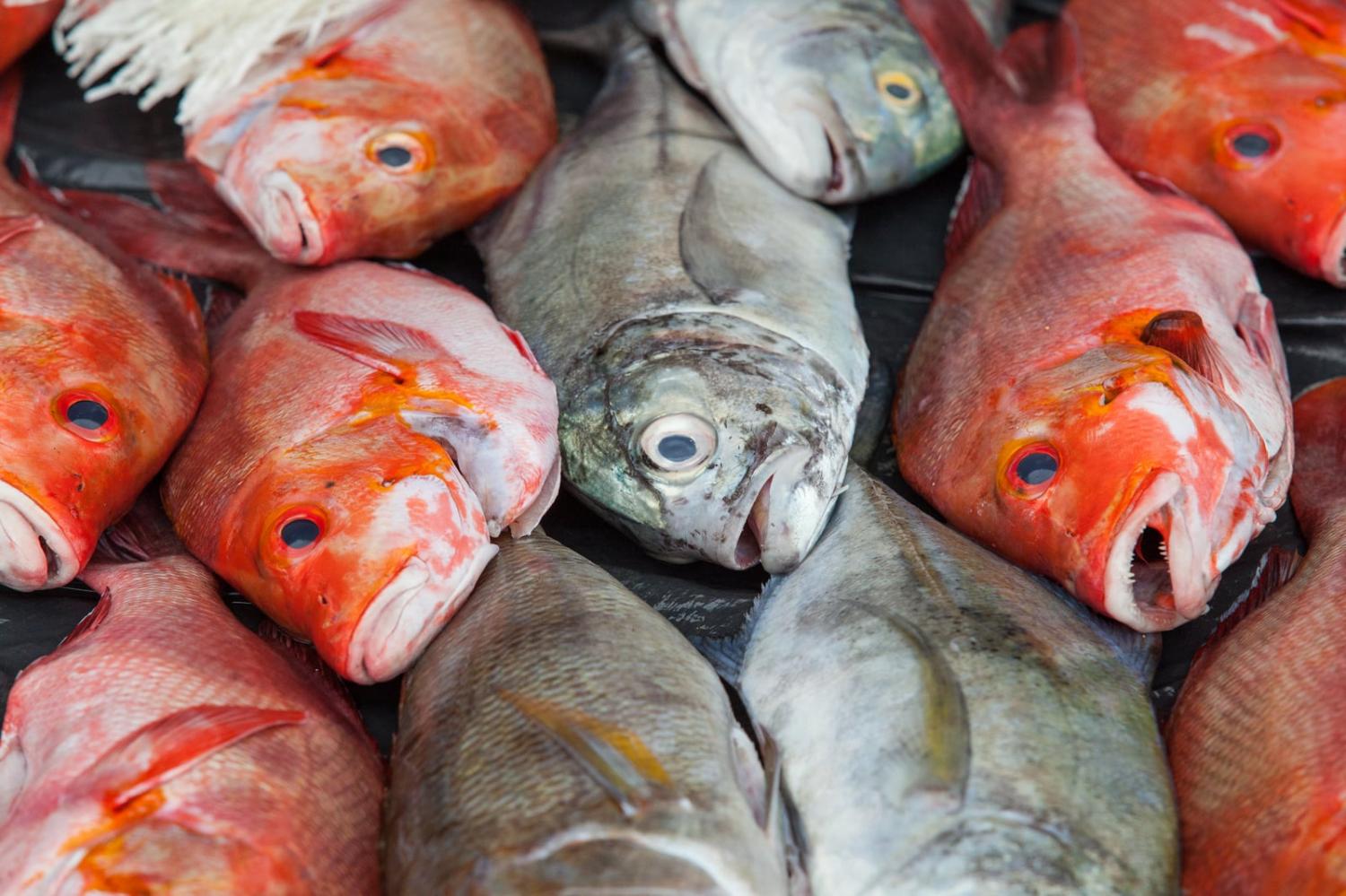Across the island states of the Pacific, indigenous food systems have been shaped and refined over centuries to make the most of bountiful natural resources without exhausting them. The exchange of fish and crops is the heartbeat of the Melanesian food system and is deeply embedded in the history, culture, and identity of its people.
However, this unique legacy of knowledge has been usurped by centuries of colonialism followed by incorporation, on unequal terms of trade, into the modern, industrialised global food system. Diets – and the food production and distribution systems that supply them – have been supplanted by the influx of imported and processed foods, leaving islands particularly vulnerable to global challenges, from the climate crisis or soaring inflation to food price hikes and public health concerns.
But building on the foundations of traditional food practices offers a credible and sustainable pathway to modern island food systems that achieves better health outcomes, climate change resilience, and greater stability across the region.
Islands across the region, from the high islands in Melanesia to the low-lying atolls in Micronesia, face a range of different food and nutrition challenges.
The loss of food sovereignty through weakened indigenous food systems, which are heavily reliant on fish and other aquatic foods, is both a cause and effect of today’s challenges. For instance, per capita agricultural output across the Pacific dropped by more than a third in the 1980s, being rapidly replaced by imported foods unable to provide the healthy and sustainable diets the region needs.
The result was a spike in diet-related illnesses such as obesity and diabetes, now linked to almost three in four adult deaths in Pacific Islands.
Strong indigenous food systems are also a key feature of sovereignty and security, particularly in a region with such high disaster risk. Vanuatu, Solomon Islands and Tonga top the list of countries most at risk of disaster due to high exposure and vulnerability.

Not only do traditional foods and practices offer better prospects for health and nutrition, they are the cornerstone of sustainable and shock-proof food systems, as seen during the Covid-19 pandemic, when indigenous food systems played a key role in shoring up food and nutrition security, particularly when imports dried up.
Clearly, listening to a new generation of national leaders is a critical element of a “decolonised” approach to research and development assistance, and in Australia the Albanese government is visibly shifting the tone and focus of engagement with the Pacific Islands in this direction. With additional technical support for national priorities, including the adoption of a more integrated approach that cuts across different government departments, Pacific Island leaders can be empowered to strengthen indigenous food systems, building resilience from the shore up.
Firstly, overseas investment and aid should support the co-development of research geared towards developing solutions based on the specific needs and priorities of the Pacific Islands.
We are at a point in time where positive change is more possible than ever. National agencies across the Pacific are adequately equipped with trained and skilled staff. In Solomon Islands, for instance, the Ministry of Fisheries and Marine Resources has almost doubled in staff focused in the crucial areas of coastal fisheries management and community development, between 2016 and 2020. A strong recognition of Pacific Island capacity is an important step towards a legitimate approach that addresses the unique set of environmental and nutritional challenges that are both experienced, and will be experienced, by the island states throughout the region.
Secondly, research and development assistance planning must continue to ground their work in the geographical context to ensure that it can deliver the greatest impact. Islands across the region, from the high islands in Melanesia to the low-lying atolls in Micronesia, face a range of different food and nutrition challenges. As a result, place-based research and development could identify the production systems most appropriate for each island, such as novel aquaculture technologies at high-islands with significant inland populations where ocean fish is inaccessible, or strengthened lagoon and reef habitat management along coasts with high fishing pressure.
Finally, Pacific Islands and partners urgently need significant investment that goes beyond piecemeal and superficial interventions to deliver impact at scale, leaving no one behind. Doubling down on research and development is critical to revolutionise food systems in Pacific Islands and reverse the current trend of malnutrition and climate vulnerability.
Rebuilding and reinforcing indigenous food systems offers an unmistakable opportunity to restore food sovereignty, and in doing so, build the resilience of Pacific Islands and the region at large to better cope with the threats the entire world is facing.


